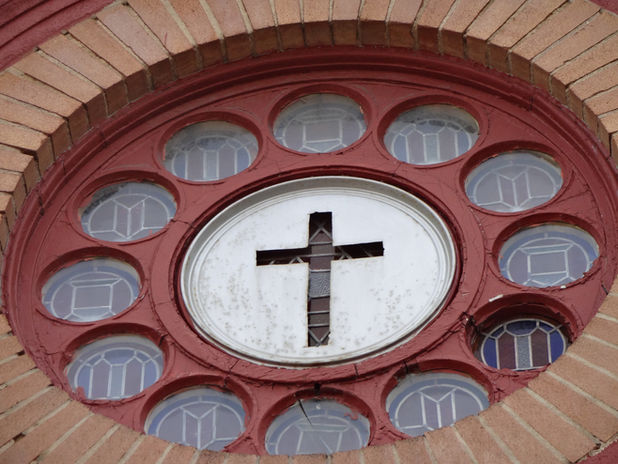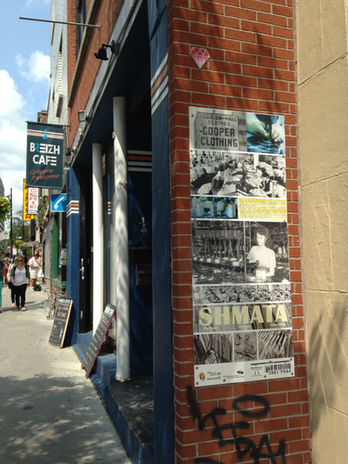Scarlett Andes
Published Work & Presentations
These pieces, either published through an organization or given as talks, present original research. Using a public writing approach, I aim for all of my work to be accessible and engaging, while also contributing to public discussion and academic scholarship.
Published Work
"Agnes Nestor – Working Women’s Advocate" – Suffrage 2020 Illinois (Fall 2019)
Christmas Jewels: A Taste of the Holidays at Mundelein College – Blog Post for the Women and Leadership Archives (December 2019)
Nearly Ninety Years of Mundelein College – Blog Post for the Women and Leadership Archives (March 2020)
A WLA Detective Adventure: "Share Your Story: Student Life at Mundelein" – Blog Post for the Women and Leadership Archives (July 2020)
Have Your Cake And Ballot Too: Cookbooks in the Fight for Suffrage – Blog Post for the Women and Leadership Archives (October 2020)
"Artifacts From the Vault" Video Series for Instagram (written, voiced, and edited) – Illinois Holocaust Museum (Winter 2020 - Spring 2021)
Presentations
"When Times Have Changed and Your Museum Hasn't: The Case of Stellenbosch University's Volkekunde Collections"
2019 Loyola History Grad Student Association Annual Conference
Supervisor: Dr. Virginia Dominguez
Abstract:
South Africa’s complex history of apartheid and its dissolution, while written in countless history books, are still fresh in public memory, especially in South African universities, where the particular form of anthropology practiced in the early 20th century, called volkekunde, was used to rationalize policies of apartheid. While the newest generation of college students may not have lived through it, policies of separation and blatant racism are reflected in social life throughout the country. Thus it is not surprising that museum displays and collections still exist that perpetuate the values and ideologies of apartheid-era South Africa.
The University of Stellenbosch in South Africa has one such museum. As the Department of Anthropology embarks on an initiative to reform their department and the museum, I attempt to determine what is currently in this collection, and I propose several approaches to redefining the interpretation of the objects they inherited that would make for interesting, relevant exhibits and serve as powerful educational tools. These approaches range from simple additions of context to an initiative to invite local artists to design exhibits mixing their contemporary art with the museum's collection, drawing inspiration from initiatives at the Field Museum in Chicago.
Roundtable Panelist: Anthropology Inside and Outside the Academy
2018 Central States Anthropological Society Annual Conference
Abstract:
This Roundtable will focus on the nature of jobs taken by anthropologists outside the academy and spanning the academy. It will focus on what is anthropological about the kind of work anthropologists do outside the academy, even when they sometimes teach in the academy. Over half of people with higher degrees in anthropology in many different countries, including the United States, earn their living primarily outside the academy, so it is important to know what they do, what is anthropological about how they do it, and what adjustments they need to make in order to be anthropologists earning a living outside the academy. Different kinds of employers will be represented on this Roundtable--from law firms to the U.S. Corps of Engineers and the software industry. Many more could be included, but we want to start this conversation, make it avilable to students and faculty members at the CSAS Annual Meeting, and generate discussion of what it could mean to have most, if not all, anthropology be simultaneously inside and outside the academy.
"Writing Their Names on the Walls: Remembering and Forgetting in Jewish Montreal"
2015 Association for Canadian Jewish Studies Annual Conference
Thesis for the Degree of Bachelor of Arts in Anthropology
University of Illinois at Urbana-Champaign, 2015
High Distinction
Supervisors: Dr. Virginia Dominguez, Dr. Alma Gottlieb
Public history signage on Main St., Montreal, center of the former Jewish neighborhood
Photo (c) Scarlett Andes 2014
Abstract:
In this thesis, I examine themes of memory and forgetting, language politics, and cultural nationalism with respect to the Jewish community of Montreal. As a result of an aging population and an exodus of younger generations, members of the Jewish community are very much concerned with memory and guarding against forgetting, undertaking efforts such as gathering remaining testimony and searching for lost history. This thesis focuses on a particular interest in the past among members of the Jewish community in Montreal. I propose that Jewish memory work in Montreal is characterized by the act of “inscribing,” physically or symbolically marking places to claim them as testimony to the Jewish lives that once inhabited them, usually through the use of names and accounts of events. This work is driven by a desire to retell the particular history of the Jewish community, with a focus on the first half of the 20th century. While this type of interaction with memory may be found in other immigrant communities with comparable histories, each manifests itself in unique ways. In this case, the city of Montreal provides specific sociopolitical and linguistic contexts that played pivotal roles in shaping this community’s identity and relationship with its past.

